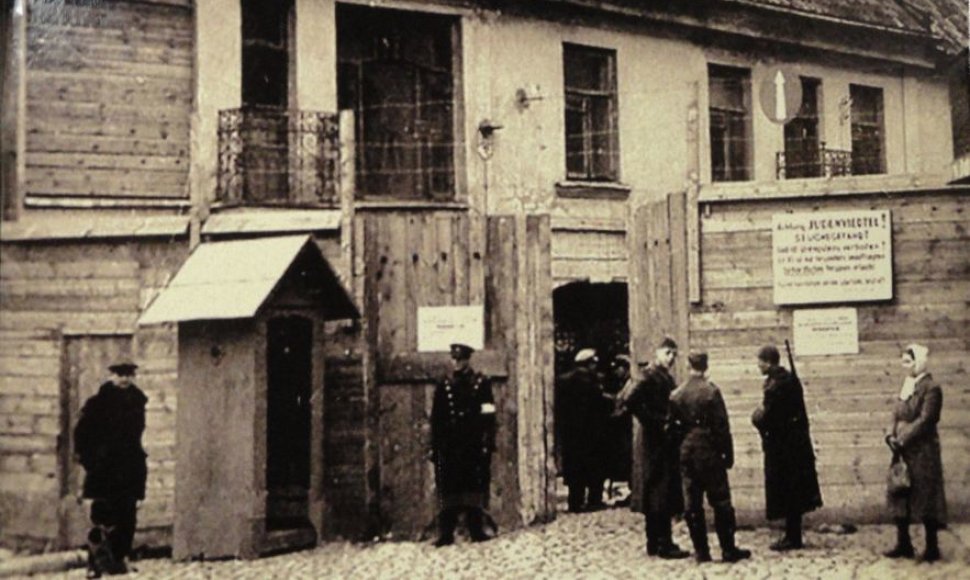70 years later, Malkes, now living in France, came to Lithuania and reminisced about the survival drama which ended successfully for just only 2,000 out of more than 70,000 of Jews of Vilnius.
A few weeks before the liquidation of the ghetto on September 23, 1943, Malkes was moved from the ghetto in the old town to a Nazi labor camp HKP on Subačiaus Street where German military equipment used to be repaired.
In an interview with BNS, Malkes said that his father and his friends started setting up the hideout as soon as they arrived.
"As soon as we came to this place, we knew that one day would come an end," said Malkes, who arrived in Vilnius to attend the commemoration of the 70th anniversary of the liquidation of Vilnius Ghetto.
Fearing annihilation, dozens of people gathered in the hideout on one summer night of 1944, several weeks before the second Soviet occupation of Lithuania.
"The hiding place was made for 12-15 people. We ended up 37," the 86-year-old man said.
"You had no air, you had no water, it was just horrible. You were lying on the floor, leaking the walls which was transpiring. One guy got crazy, took a knife. We killed him," Malkes said.
After two days in the hideout, a group of ten people decided to escape. Having survived being shot at on their way, they spent several days hiding in the cornfields and a hospital in Vilnius.
Malkes' mother also survived in the hospital where she ended up thanks to German Karl Plagge who worked at the Nazi camp. Malkes said he had to put a lot of effort to have the German engineer recognized as a Righteous among the Nations.
After the Soviets returned to Vilnius, the family moved to the West.
"We were not communists, we were anti-communists," Malkes said. His father was a well-off businessman and was incarcerated by the Soviets for some time after the war broke out.
After spending several years in Poland, the family moved to France. Malkes still lives in Paris. He arrived in Vilnius for the first time soon after Lithuania regained independence in 1990.
Around 90 percent of Lithuania's Jewish population of 208,000 were killed during the Holocaust. Lithuanian collaborators often assisted the Nazis in killing Jews. In the past, Lithuania has come under criticism for failing to make enough effort to bring them to justice.
844 Lithuanians have been named Righteous Among the Nations for saving Jews.












